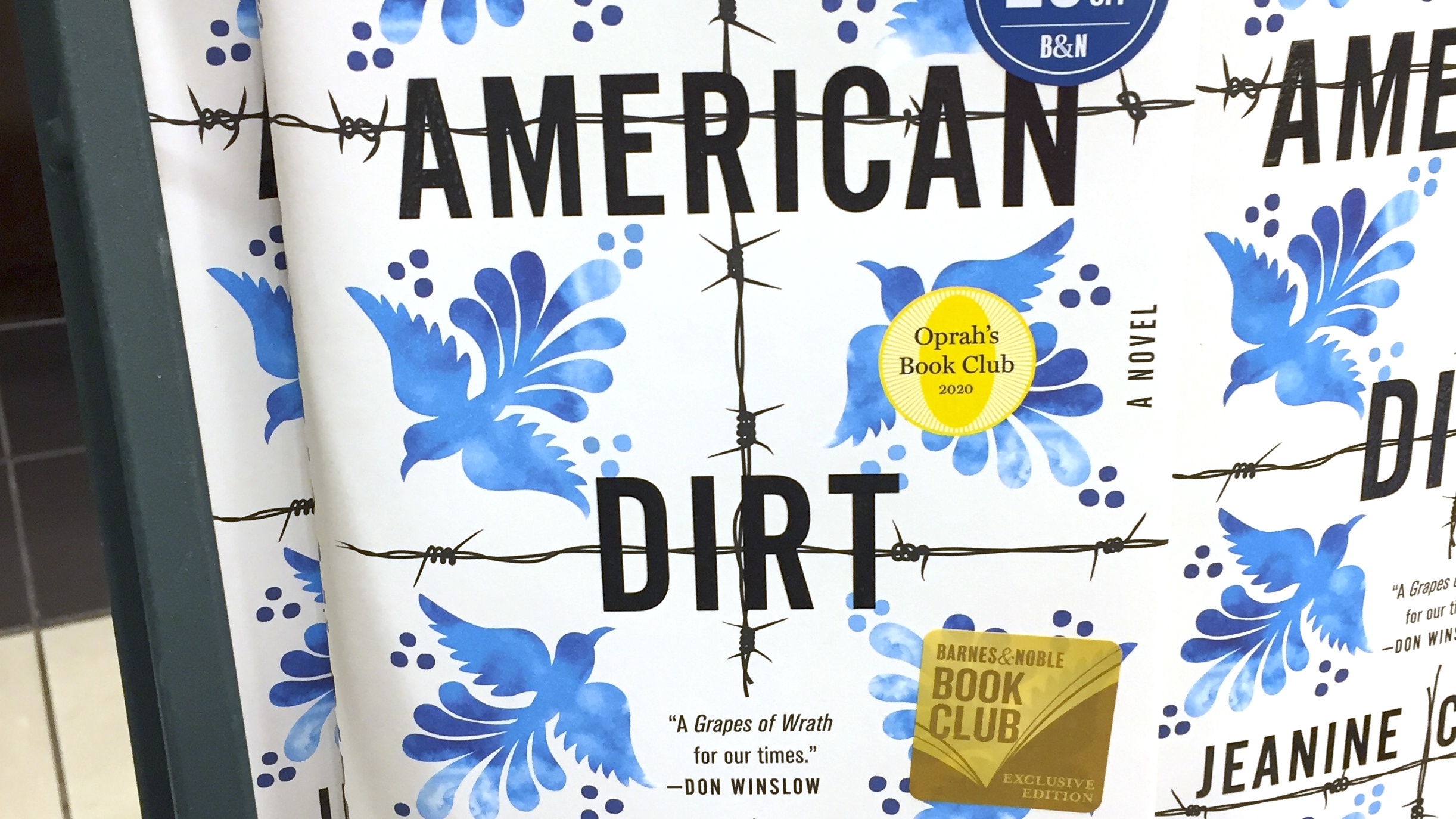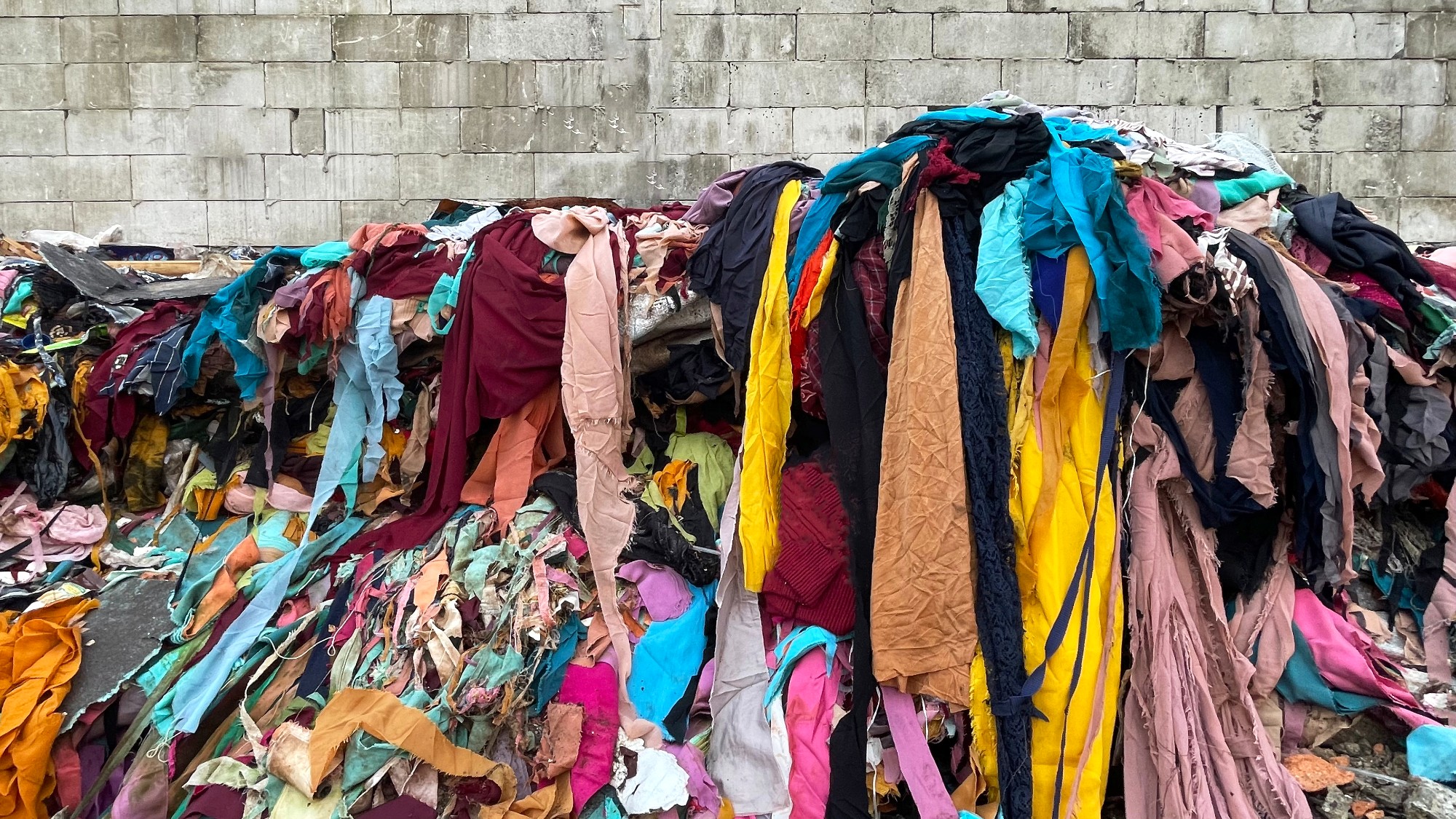Why everyone’s talking about American Dirt
Jeanine Cummins novel criticised as ‘cultural appropriation’ and ‘opportunistic’

A free daily email with the biggest news stories of the day – and the best features from TheWeek.com
You are now subscribed
Your newsletter sign-up was successful
A US author’s novel about the plight of Mexican migrants has fuelled global debate about cultural appropriation and representation.
Jeanine Cummins’ book American Dirt hit the spotlight after being chosen for Oprah’s Book Club, an honour that can boost sales of a title from thousands to millions.
But not everyone is convinced that talk show host Oprah Winfrey made the right choice this time round.
The Week
Escape your echo chamber. Get the facts behind the news, plus analysis from multiple perspectives.

Sign up for The Week's Free Newsletters
From our morning news briefing to a weekly Good News Newsletter, get the best of The Week delivered directly to your inbox.
From our morning news briefing to a weekly Good News Newsletter, get the best of The Week delivered directly to your inbox.
What is Cummins’ novel about?
American Dirt, Cummins’ third novel, tells the story of a middle-class Mexican woman, Lydia Quixano Perez, and her eight-year-old son, Luca, who are forced to flee their home after their family is targeted by a drug cartel boss.
Lydia and Luca then join a number of undocumented immigrants from Latin America attempting to journey to the US.
What are the main criticisms?
A free daily email with the biggest news stories of the day – and the best features from TheWeek.com
The book has been accused of featuring hackneyed depictions of Mexicans and misrepresenting the journeys of undocumented migrants to the US.
“People are stereotypes in this novel, participating in stereotypical activities,” writes Mexican-American author David Bowles. “They live in a flattened pastiche version of Mexico, a dark hellhole of the sort [Donald] Trump rails against, geographically and culturally indistinct... It’s all very Hollywood, very best-selling thriller.”
Those criticism are echoed by Mexican-American writer Myriam Gurba, who accuses Cummins - who is white with a Puerto Rican grandmother - of appropriating Mexican stories, and of “opportunistically, selfishly, and parasitically” exploiting the “gringo appetite for Mexican pain”.
The seven-figure advance that Cummins received for writing the book has “raised questions about who gets to profit from telling the story of the border crisis”, says The Guardian.
In a review for The New York Times, author Lauren Groff praises American Dirt but also wonders whether it was appropriate for Cummins to write such a story - and even whether she herself should be judging it.
Groff describes being “sunk into anxiety when I discovered that, although Cummins does have a personal stake in stories of migration, she herself is neither Mexican nor a migrant”.
The reviewer adds that another “fear had also crept in as I was reading: I was sure I was the wrong person to review this book. I could never speak to the accuracy of the book’s representation of Mexican culture or the plights of migrants; I have never been Mexican or a migrant.”
What do the book’s supporters say?
Some critics argue that Cummins’ novel should be judged entirely on its own merits, and that her lack of Mexican crudentials is irrelevant.
“The hysterical reaction is dangerous, because it will inevitably put people off writing about experiences they haven’t had,” says Jake Kerridge in The Telegraph.
He argues that “literature would be in a sorry state if we did away with ‘appropriation’. Flaubert, discouraged from inhabiting the consciousness of a woman, would have had to write Monsieur Bovary. The world might still know nothing of Oskar Schindler if the Australian Thomas Keneally hadn’t stumbled upon his story and written Schindler’s Ark.”
The Guardian columnist Nesrine Malik claims the problem with American Dirt is not that it was written by a white author but that it was written poorly.
“The writer herself caveated her book by saying that ‘I wished someone slightly browner than me would write it’. The less controversial fact is that American Dirt didn’t need a browner writer to save it from the opprobrium. It needed a better one,” says Malik.
–––––––––––––––––––––––––––––––For a round-up of the most important stories from around the world - and a concise, refreshing and balanced take on the week’s news agenda - try The Week magazine. Start your trial subscription today –––––––––––––––––––––––––––––––
What next?
The president of Flatiron Books, the publisher behind the novel, released a statement last week saying that the company was proud to be associated with the title. Bob Miller added that he was “surprised by the anger that has emerged from members of the Latinx and publishing communities”.
However, Miller acknowledged “serious mistakes” in the tone-deaf publicity for American Dirt - including featuring barbed-wire centrepieces at a bookseller dinner, as Vulture reports.
The publisher has cancelled the remainder of Cummins’ book tour, citing “concerns about safety” and “specific threats to booksellers and the author”.
Instead, Flatiron Books will organise a town-hall series “where Jeanine will be joined by some of the groups who have raised objections to the book”, Miller said.
Meanwhile, Variety reports that the movie rights to American Dirt were acquired a year ago, prior to the novel’s release, by Imperative Entertainment, the production company behind Clint Eastwood’s The Mule.
“Multiple celebrities, including Gina Rodriguez and Salma Hayek, rushed to promote the book given its subject matter,” says the entertainment news magazine.
In the wake of the cultural appropriation row, Hayek has posted a statement on Instagram saying that she had not read the book when she backed it and apologising for “shouting out something without experiencing it or doing research”.
What has Cummins said?
Speaking to Washington D.C.-based news site NPR, Cummins said she had tried to be “incredibly culturally sensitive” and did five years of research before writing American Dirt.
“The whole intention in my heart when I wrote this book was to try to upend the traditional stereotypes that I saw being very prevalent in our national dialogue,” she said.
The author added that she was aware of her “cultural blind spots”, but argued that her Puerto Rican heritage has been “attacked and sidelined by people who, frankly, are attempting to police my identity”.
Acknowledging that she is a “beneficiary of white privilege”, Cummins added: “I am always examining my position in society and the positions of the people around me because I am deeply, deeply committed and interested in equality. And so it’s particularly painful to be in the sort of cross hairs of this really, really big conversation.”
-
 How the FCC’s ‘equal time’ rule works
How the FCC’s ‘equal time’ rule worksIn the Spotlight The law is at the heart of the Colbert-CBS conflict
-
 What is the endgame in the DHS shutdown?
What is the endgame in the DHS shutdown?Today’s Big Question Democrats want to rein in ICE’s immigration crackdown
-
 ‘Poor time management isn’t just an inconvenience’
‘Poor time management isn’t just an inconvenience’Instant Opinion Opinion, comment and editorials of the day
-
 7 hotels known for impeccable service
7 hotels known for impeccable serviceThe Week Recommends Your wish is their command
-
 11 hotels opening in 2026 that will move you to reconnect with nature
11 hotels opening in 2026 that will move you to reconnect with natureThe Week Recommends Find peace on the beaches of Mexico and on a remote Estonian island
-
 8 incredible destinations to visit in 2026
8 incredible destinations to visit in 2026The Week Recommends Now is the time to explore Botswana, Mongolia and Sardinia
-
 6 optimal digital nomad destinations: Pack your laptop, your visa and a sense of adventure
6 optimal digital nomad destinations: Pack your laptop, your visa and a sense of adventureThe Week Recommends See the world — but do it in a conscientious manner
-
 Love chocolate? Travel to these destinations to get your sweet fix
Love chocolate? Travel to these destinations to get your sweet fixThe Week Recommends Treat yourself with chocolate experiences, both internal and external
-
 See the bright lights from these 7 big-city hotels
See the bright lights from these 7 big-city hotelsThe Week Recommends Immerse yourself in culture, history and nightlife
-
 Cultural copying: Western fast fashion is co-opting South Asian culture
Cultural copying: Western fast fashion is co-opting South Asian cultureUnder the radar Reformation's new collection resembles traditional South Asian garments
-
 7 nightlife destinations that are positively electric
7 nightlife destinations that are positively electricThe Week Recommends Accra, Seoul, Berlin: These are a few of the cities that come alive after dark